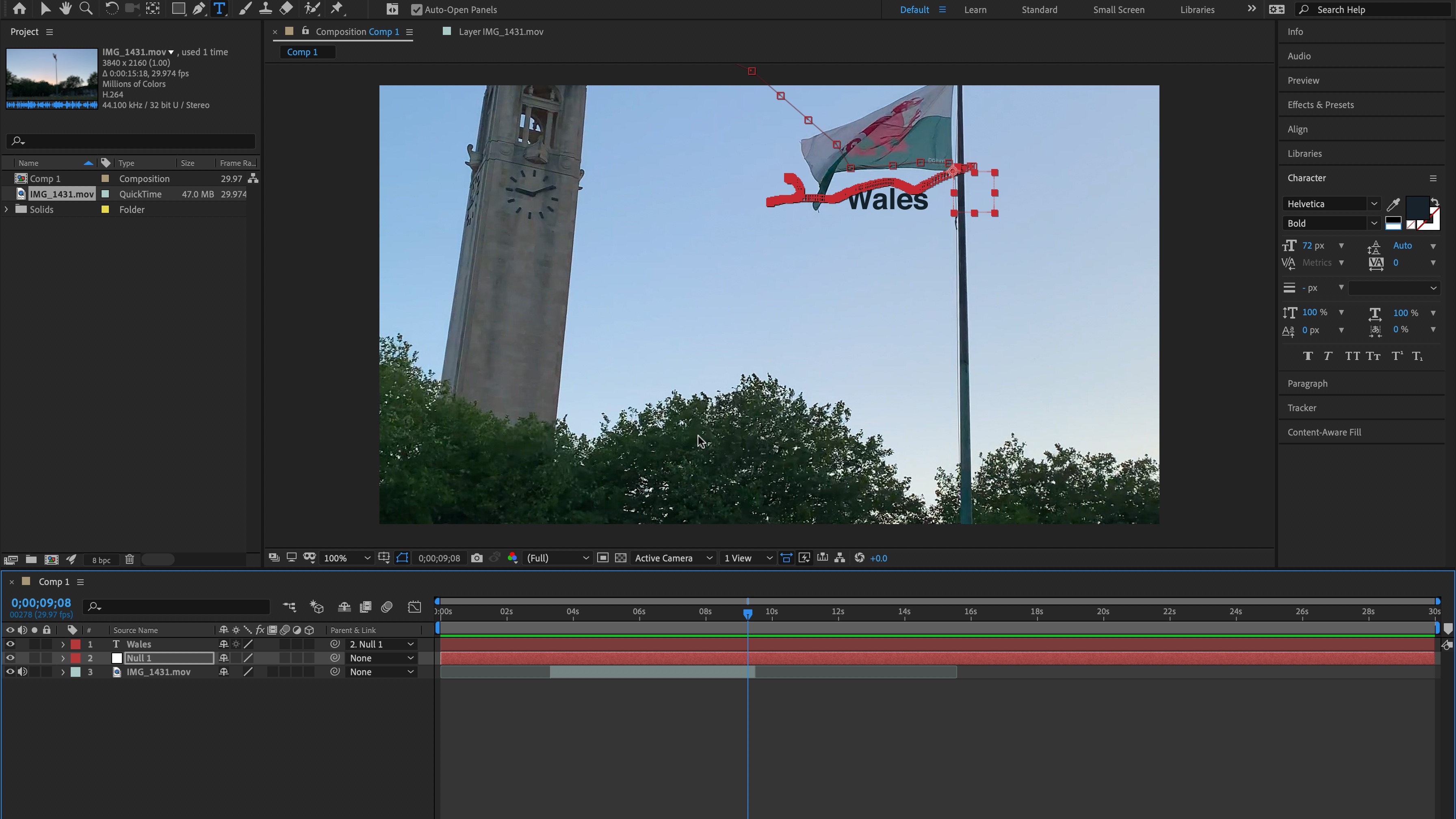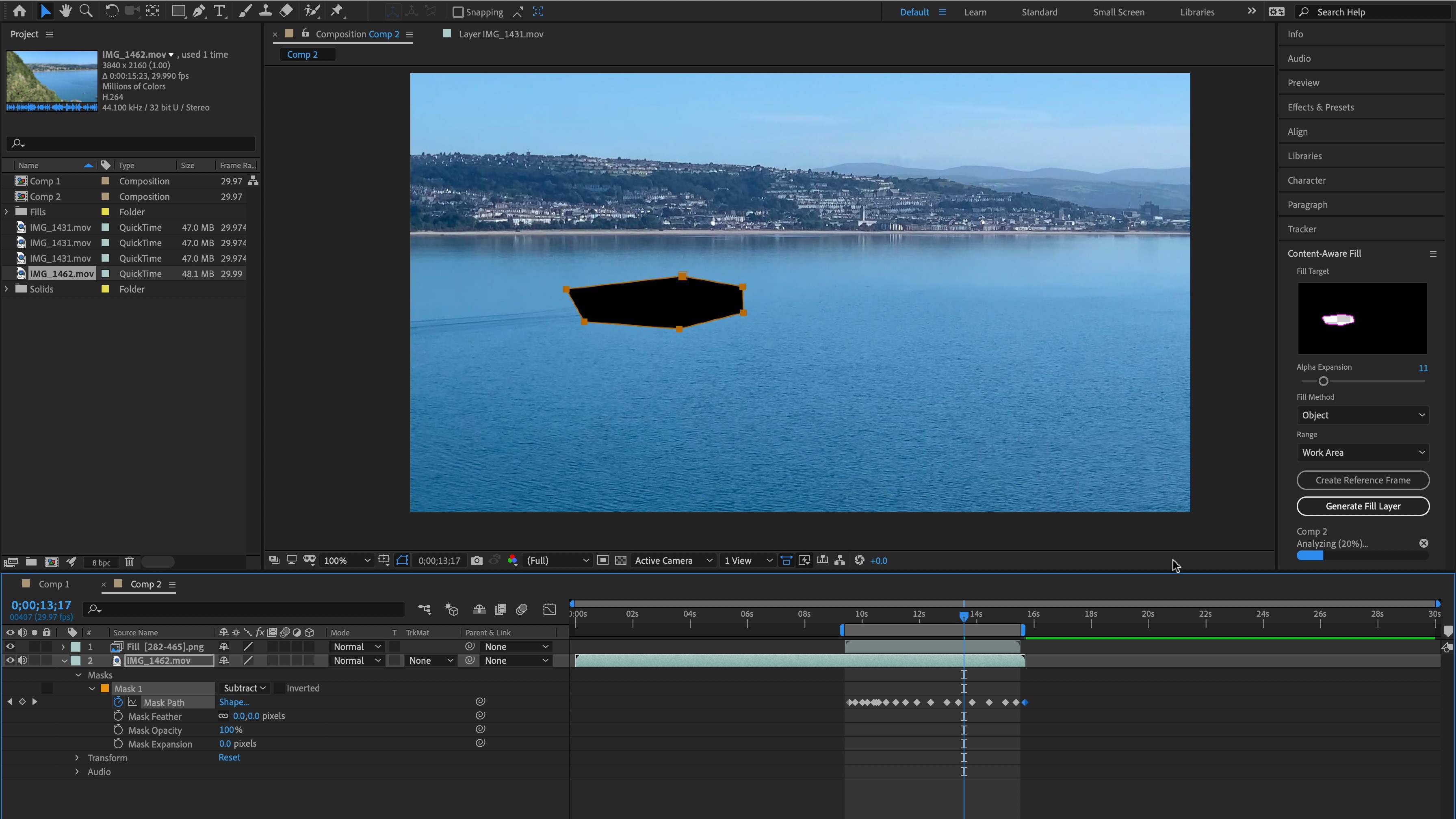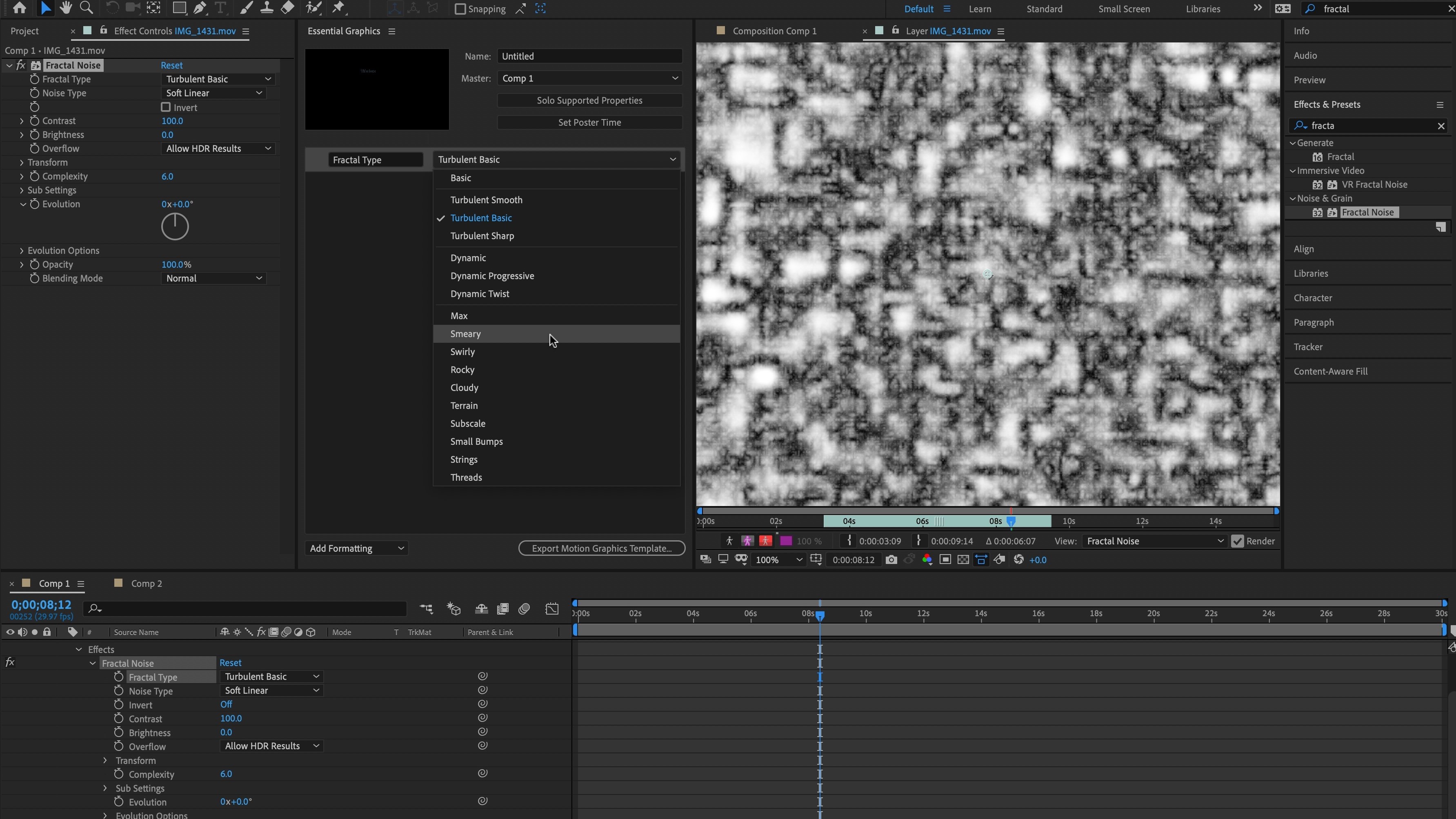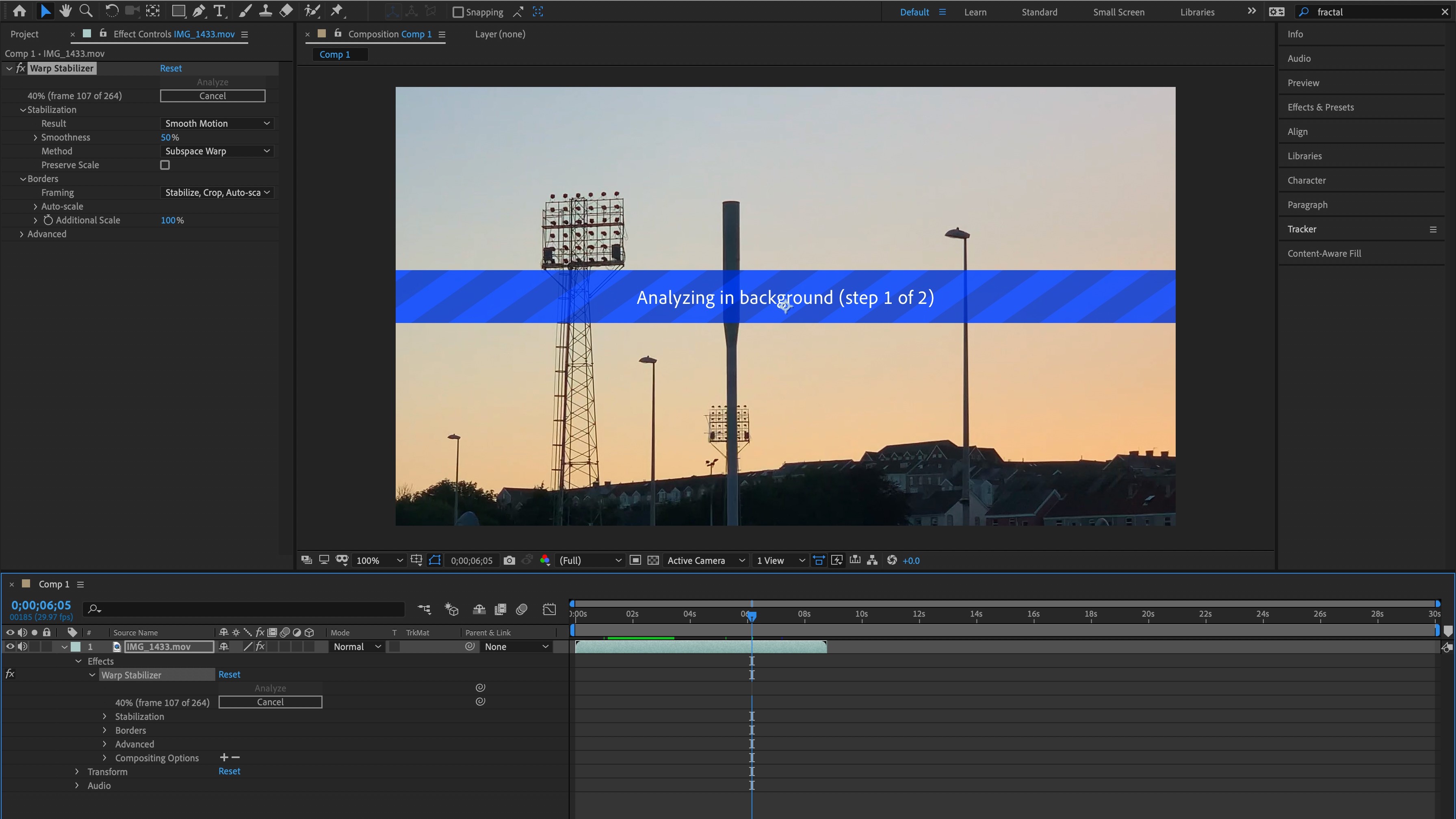If you’re a videographer and you need to create some special effects, chances are you’re probably already thinking of Adobe’s After Effects. It’s been available for nearly 30 years and under the stewardship of Adobe since 1995. Just like Premiere, it is a powerhouse for videographers and often the only app they need to transform shots, apply effects and create dazzling titles.
We last took a look at it back in 2017, and that’s an eternity as far as software goes, so let’s see how After Effects shapes up now in 2020, with version 17.

Speed and stability
The big one for this release is speed and stability. The programmers have focused themselves on performance. Adobe have worked very hard to make this huge software is more responsive and this can be seen in many places.
The main one which will be immediately obvious to nearly all users, is preview playback optimisation: not only is After Effects creating the ram preview for your project quicker, but once done, you should be able to play back your project in real time, even while you’re interacting with the user interface.
Of course, we say “should”, because as always when working with complex files, projects and effects, there could be instances where it’s clear Adobe still has some work to do.
However, during our interaction with the app for this review, we did find the interface to be more responsive, playback to be more fluid, and the whole interface on the whole to be a lot more stable.
We’ve noticed performance boosts when using Shape layers, certain expressions were sped up, And the Content Aware Fill feature also greatly benefited from this.
In our mind, this alone is worth upgrading to the latest version as soon as you’re able.

Content Aware Fill
But what’s Content Aware Fill we hear you ask? That’s one of the big ones that were introduced between 2017 and 2020, and is a great new addition to After Effects. We’re well aware this isn’t actually a new feature introduced with the latest release, but it’s so important, we felt we needed talking about it.
Photoshop users undoubtably have been aware of a similar feature for a while: it allows you to remove an object from the screen and the background to be seamlessly extended over this gap to essentially make that object disappear.
What you could do with a still image in Photoshop, you can now do to video in After Effects. As always, your results will depend on your clip’s content, and we found simple a background yields much better results.
However, you can also see the huge advantage Adobe has in controlling so many properties: in order to improve the effect, you can create a reference frame. Activating this bring said frame into Photoshop, where you can work on removing the offending object, by using that app’s Content Aware Fill to recreate the background. Once done, After Effects will then use that altered frame as a reference to improve its own calculation and give you a more seamless result for your clip.

Drop down menus
A big improvement has been made to the interface with the way you can control parameters in drop down menus. Essentially, any drop down menu you can access from the list in the timeline can be dragged in its entirety to the Essential Graphics Panel.
Now this can make it easier to access should you need to change the values often over time, or when building a template for instance. However this means that these dropped down menus can be used as master properties, and when you add them to a new composition they’ll be available there as well.
It should help make templates much easier. Prior to this you had to use sliders to switch between settings, but now, you can use a drop down menu instead, and even rename each menu to exactly what you need, making such alteration much easier to perform.
This will be a huge time saver to all those who use Expressions when creating effects and templates.
Text expressions
If you’re into Expressions, you will likely appreciate being able to access text property parameters through Expressions. Using this method, you can grab parameters from one text layer and set them on another. If you have a complex text effect which you need to reproduce, you’ll find this another great, powerful and versatile feature.

The little things
These are all huge improvements, but Adobe have also worked on the little things - tweaks which make your work so much quicker and easier, you’ll wonder why this wasn’t implemented sooner.
One such improvement was done with Shape layers. You can now select a bunch of them and with a right click, or a keyboard shortcut, just group them together. Another right-click and you can ungroup them just as quickly. Certainly much quicker and easier than the old way (which was to create a group and drag and drop layers into it).
Final verdict
After Effects is huge, and no review can truly do it justice, but the major changes in this version are all designed to simplify and speed up your work, and in that sense, there’s very little reason not to upgrade. Yes it’s a complex piece of software, but it allows you to do so much to your video clips, and now, it can do it faster, easier - in some cases - and is much more stable. Adobe have done a great job here and we look forward to further performance improvements in the future.
Do note however, that you cannot purchase After Effects as a standalone product. Rather, it has to be bought via the subscription model (as part of Creative Cloud), but the advantage here is you don’t have to think too long and hard about whether to upgrade or not. If you like what you see, upgrading is simply part of the monthly fee you pay Adobe for the use of its apps, and in the case of After Effects, the advantages to your workflow make this pretty much a no-brainer.
- We've also highlighted the best video editing software
from TechRadar - All the latest technology news https://ift.tt/2EnsS3j
via IFTTT
0 التعليقات: